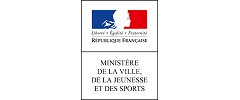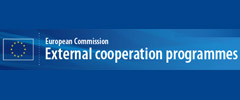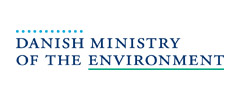Chemicals need to be safe
WECF's message to delegates at Chemicals Summit in Dubai, 4-6 February 2006
03.02.2006 |Daniela Rosche
WECF briefing for delegates at the International Conference on Chemicals Management (ICCM) in Dubai, 4-6 February 2006
Women are concerned about chemicals. We are concerned about the chemicals that we are exposed to everywhere, every day and without our knowledge: in the shower, in front of the computer, in the kitchen and in the workplace. These chemicals are polluting our air, rivers, seas and wildlife. To date, up to 300 chemicals have been detected in the human body alone.
Women, men and children are susceptible and exposed to chemicals in different ways. Biological factors are one reason for the different susceptibility of women with respect to chemicals. However, social factors are also influential when it comes to exposure to chemicals and pollutants of women. For example, there is a direct link between prevailing gender roles and exposure to chemicals in for example household and cleaning products, cosmetics and personal care products.
Chemicals are passed on by each generation, directly from mother to child. Many substances are considered chemicals of very high concern because they accumulate in the body and cannot break down; they are toxic, disrupt the hormone system, cause cancer or are able to alter our DNA. Some high concern chemicals harm the developing child already in its crucial perinatal phase and damage the development of sexual organs involved, the brain and nervous system. Recent reports have also pointed out that health effects in children only become visible once the child has reached puberty or adulthood. Of those chemicals where there is research available, a variety of negative health effects have been observed ranging from learning disabilities, asthma and allergies to infertility and cancer.
Alarmingly, many of the chemicals on the world market, have never been tested for their health and environment effects. This is an unacceptable information gap. Children have the right to be brought into the world without a heavy chemical body burden in their still developing bodies. Women and their communities have the Right to Know what they are exposed to in their homes, at the workplace, on the field and in the environment.
Governments have recognized this mounting threat and agreed during 2002 the World Summit on Sustainable Development
“to achieve by 2020 that chemicals are used and produced in ways that lead to the minimization of significant adverse effects on human health and the environment”
We are fully prepared to support our governments in order to achieve this goal. Throughout the SAICM process the importance of women as been highlighted. We call on governments to act on this premise and live up to their political duty to agree on a Chemicals Management system that protects women and vulnerable future generations. In order to achieve this goal we demand from governments represented at the ICCM:
- Any legislative framework targeting chemicals as well as corporate practices must be based on the precautionary principle
- As a consequences, the principle of substitution must be applied whenever safer alternatives are available. We believe this will stimulate innovation, enhance competitiveness and make a strong contribution towards clean production and sustainable development
- We congratulate the governments of the world on the progress achieved through out the SAICM process. However, the experiences of the past have demonstrated that in order for chemicals legislation to take effect, it must be legally binding
- We encourage and ask the United Nations Environment Program to take the lead in finding a mechanism whereby this can be achieved
- Substantial assistance to developing countries and countries with economies in transition are necessary in order to implement the outcomes of the SAICM process
- SAICM and relevant outcomes of the process such as the Ministerial Declaration and the Global Plan of Action must embrace existing principles applied in chemicals management such as the polluter pays principle, comprehensive right-to-know laws and the no data, no market principle
WECF at ICCM: Ms. Elena Manvellian, WECF member representing Armenian Women for Health and Healthy Environment (AWHHE), office@awhhe.org
Alternative contact: Daniela Rosche, Policy Coordinator, WECF in the Netherlands, 0031-6-2295 0027, daniela.rosche@wecf.org

































